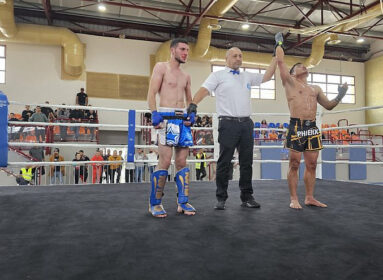
New children’s book is the story of the inventor of Modern Hebrew
By Stacey Dresner
Richard Michelson has written several award winning Jewish children’s books including A is for Abraham: A Jewish Family Alphabet and As Good as Anybody: Martin Luther King and Abraham Joshua Heschel’s Amazing March Toward Freedom.
Last year Richard Michelson wrote Fascinating, a children’s book about his very close friend, the late Leonard Nimoy.
 His latest picture book is The Language of Angels: A Story about the Reinvention of Hebrew. Illustrated by Karla Gudeon, the book tells the story of how Eliezer Ben-Yehuda developed the Modern Hebrew language. Michelson tells the story through the eyes of Ben-Yehuda’s son Ben-Zion, who was forbidden by his father from speaking the Yiddish or Russian that other children in Jerusalem spoke, but who eventually helped his father to develop new Hebrew for modern words, bringing Hebrew into modern use.
His latest picture book is The Language of Angels: A Story about the Reinvention of Hebrew. Illustrated by Karla Gudeon, the book tells the story of how Eliezer Ben-Yehuda developed the Modern Hebrew language. Michelson tells the story through the eyes of Ben-Yehuda’s son Ben-Zion, who was forbidden by his father from speaking the Yiddish or Russian that other children in Jerusalem spoke, but who eventually helped his father to develop new Hebrew for modern words, bringing Hebrew into modern use.
Michelson’s children’s books have been listed among the 10 Best Books of the Year by The New York Times, Publishers Weekly, and The New Yorker; and among the 12 Best Books of the Decade by Amazon.com. In 2009 Michelson received both a Sydney Taylor Gold and Silver Medal from the Association of Jewish Librarians, the only author so honored in AJL’s 47-year history. The Language of Angels has already been chosen as a PJ Library selection and a Junior Library Guild selection.
Michelson, who lives in Amherst, Mass. and owns R. Michelson Galleries in Northampton, Mass. recently talked to the Ledger about his new book.
Q: How did the book The Language of Angels come about?
A: Artist/illustrator/educator/mensch Neil Waldman and I were having lunch 15 years ago while collaborating on my book, Too Young for Yiddish, during the writing of which I learned that Isaac Bashevis Singer proudly claimed that Yiddish was the only language without a word for “armaments.” I asked Neil his thoughts about whether a language without specific words for weapons would inhibit thoughts of violence—whether language helps form the culture, or the culture creates the language—I don’t recall his answer but I do remember him mentioning the life story of Eliezer Ben-Yehuda and his quest to make Hebrew the daily language of the Jews.
Hebrew had died out as a daily spoken language (aside from the prayers) during the time of the Maccabees. But Eliezer had this meshuggeneh idea that its rebirth could help unify the Jewish people. Imagine reviving Latin today and having everyone in Italy speaking it within two generations.
And even crazier, Eliezer wanted his son, Ben-Zion, to be the first native Hebrew speaker in 2000 years so he wouldn’t allow him to hear any language but Hebrew. Which meant, of course, no friends to talk to. Ben-Zion wasn’t even allowed to hear the sounds animals make. His father would cover his ears. Child abuse for sure. But how did it all end up? Read the book and find out.
Neil, who lived in Israel at one time, said: “I was going to write that story, but couldn’t find my way in. I now give you the idea as a gift.” It took me 15 years to find my way in. And so, the book is dedicated to Neil.
Q: Did you know much about Eliezer Ben-Yehuda and the birth of modern Hebrew before writing this book?
A: To me, Ben-Yehuda was nothing more than a street name in Israel. And frankly I had never even thought about the modern miracle that is the wide scale reinvention of Hebrew as a daily language.
Q: How did you research the topic?
A: I have a bibliography in my book that lists the various source materials I consulted, but the major source was Eliezer Ben-Yehuda’s grandson, a Florida-based Rabbi also named Eliezer Ben-Yehuda, who also has a strong interest in the Hebrew language and who has written about both the language and his grandfather’s life. And my friend, Amherst college professor Ilan Stavans, has also written about Ben-Yehuda.
Q: Why write it mostly from the son Ben-Zion’s perspective?
A: Eliezer was certainly a difficult personality and finding a way into his life story was the most difficult aspect of the project. But when I read about how he used to cover his son’s ears when dogs were barking or cows mooing, so that his son, Ben-Zion, would only hear the Hebrew language, I began to wonder about what it must be like to grow up with such a maniacal parent. And having a child front and center gives the intended audience someone to relate to. Ben-Zion also gets to ask the questions about how language evolves that kids (and adults) would be interested to know.
Q: From what you learned about him, how would you describe the kind of person Eliezer Ben-Yehuda was? (I mean trying to develop a – kind of – new language takes dedication and some chutzpah!)
A: Ben-Yehuda strikes me as the sort of person that is easy to admire and great fun to read about, as long as you are not actually living in the same house, or town, or time as he did. He was willing to put his dreams above the needs of his family and friends. His own needs were even less important to him. He loved “the Jewish people” as a whole but he was argumentative and short-tempered to individuals; and yet what he accomplished could well be called a miracle, and could not have happened without his single-minded focus.
Q: Your thoughts on Karla Gudeon’s illustrations and how they work with your words?
A: In a word—WOW!! Karla’s illustrations are so colorful and child friendly that they make the story come alive in a totally fun and accessible way.
Q: Do you speak, read, understand Hebrew?
A: No, no and no.
Q: As a writer, poet (and Jew) do you have a special appreciation for the Hebrew language and Ben-Yehuda’s mission to “reinvent Hebrew”?
A: I love words and I love the way language both helps define a culture and at the same time creates that culture. So as a poet I was fascinated by Ben-Yehuda’s process of finding words for everything in the modern world that didn’t exist when Hebrew stopped being a language of daily use. He had to make us words for everything that had happened in the past 2000 years: ice cream, bicycles, and so on. Eliezer studied Arabic, Latin, Greek, and an array of ancient Hebrew texts to create the perfect word. Imagine being Adam naming all the animals. I always thought that would be great fun, but never considered the amount of work it would entail.
As a Jew, of course, I am conscious of the role of Hebrew in unifying the Zionist mission and you have to wonder if Israel itself would have come to exist without Ben-Yehuda.









 Southern New England Jewish Ledger
Southern New England Jewish Ledger













